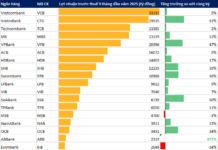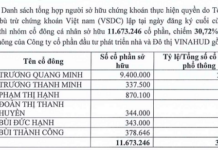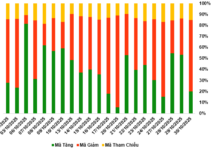
The Minister of Construction requests that agencies and units focus on prioritizing the resolution of administrative procedures for citizens and businesses, ensuring no backlog or delay.
|
On September 12, the Ministry of Construction issued Official Dispatch No. 9785/BXD-PC on the implementation of tasks under Resolution No. 268/NQ-CP dated August 31, 2025, of the Government on the implementation and operation of the two-level local government model.
In accordance with Government Resolution No. 268/NQ-CP on the implementation and operation of the two-level local government model, the Ministry of Construction requires its agencies and units, according to their functions and tasks, to focus on several key tasks.
Expedite the completion of the legal framework for the two-level local government model
The dispatch instructs the agencies and units to conduct a comprehensive review of legal documents, especially those pertaining to decentralization, delegation of powers, and clarification of competencies. They are also tasked with expediting the completion of legal documents and guidelines for implementing the two-level local government model, providing a comprehensive political and legal basis for local implementation.
Additionally, they are to propose solutions to legal difficulties, bottlenecks, and obstacles, as well as promptly provide guidance to address challenges directly related to the operations of the two-level local government.
The Ministry’s Office is to collaborate with relevant agencies and units to prioritize resolving administrative procedures for citizens and businesses, ensuring no backlog or delay. They must consider removing bottlenecks in administrative procedures as a top priority. Furthermore, they should continue to provide training and guidance to local authorities, especially at the commune level, and monitor the implementation to prevent any obstructions.
In terms of urban and rural planning, the Department of Planning and Architecture will coordinate with relevant agencies and units to supervise and inspect the implementation of Resolution No. 66.1/2025/NQ-CP dated July 18, 2025. This resolution addresses difficulties in establishing, adjusting, and approving subdivision planning for areas forming urban areas when rearranging administrative units and organizing two-level local governments.
Promulgate regulations on urban classification by September
Regarding urban classification, the Department of Urban Development will collaborate with relevant agencies and units to promptly advise and promulgate legal documents on urban classification, with a completion target of September 2025.
The Information Technology Center will take the lead in coordinating with relevant agencies and units to advise on the implementation of tasks assigned in the Government’s Resolution No. 71/NQ-CP dated April 1, 2025, and Resolution No. 214/NQ-CP dated July 23, 2025.
The Center will focus on completing the database and ensuring interconnectivity with the information systems of ministries, sectors, and localities for providing online public services through a centralized model on the National Public Service Portal. This pertains to administrative procedures under the authority of provincial and communal levels, with a completion target of 2025.
Additionally, they will develop plans and collaborate with the Government Office and the Ministry of Public Security to restructure the process of providing online public services on the National Public Service Portal.
– 08:12 13/09/2025
6 New Administrative Procedures Effective in the Employment Sector
The Ministry of Home Affairs has issued Decision No. 886/QD-BNV, introducing six new administrative procedures and repealing 11 outdated ones in the field of employment.
Crafting a Compelling and SEO-Friendly Headline: “Leveling the Playing Field: Amendments to the E-Commerce Law”
The proposed Electronic Trade Act is set to revolutionize the digital landscape, fostering a level playing field for businesses and empowering users with greater choice. This landmark legislation aims to create a fair and transparent environment, where online enterprises can thrive and consumers can make informed decisions. With a focus on regulating the industry, the act promises to shape a vibrant and competitive market, ensuring a win-win situation for all stakeholders involved.













































